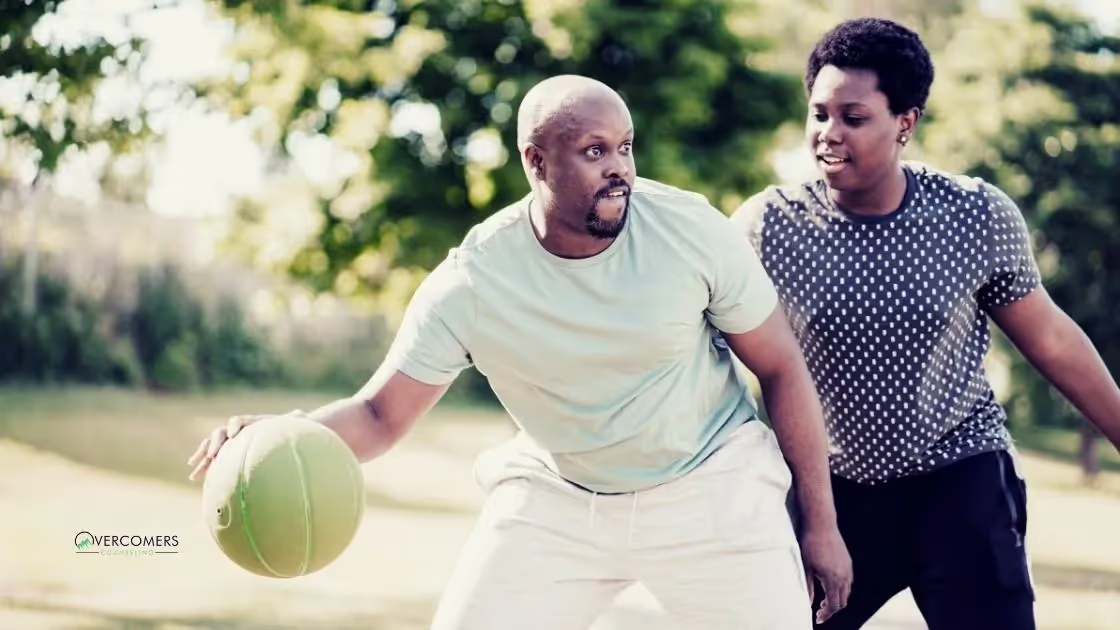Learning to bounce back in the face of adversity is an important life skill that teenagers learn early in life. This will not only help them cope with...

Learning to bounce back in the face of adversity is an important life skill that teenagers learn early in life.
This will not only help them cope with difficult situations but also build resilience for when they inevitably face challenges in the future.
Here are 15 tips for parents in helping your teenager develop this important skill:
Building meaningful relationships can make a person feel happy, safe and supported.
Strong and healthy play an essential role in helping people cope with difficult challenges, providing encouragement and reassurance when times are tough. It also serves as a source of stability and comfort in times of change.
In fact, studies have shown that those who have great relationships are more likely to bounce back than those who don't.
Helping your teenager develop strong and meaningful relationships begins with showing that you them. Here are a few simple things that you can do to help foster respect in your teenager's life:
Teenagers are often very open with their thoughts and feelings, but sometimes they need time alone to reflect on things.
Let them have that space; don't bombard them with questions or try to force conversation. Respect their need for privacy and give them the opportunity to speak when they are ready.
Teens are capable of making decisions for themselves, and should be given the same level of respect as any other adult.
Bossing them around or making assumptions about what they should or shouldn't do will only lead to resentment and rebellion.
Let them explain their reasoning for choosing something and give the freedom to do things their own way. Respect their independence and allow them to make decisions for themselves.
When it comes to parenting, one of the most important things you can do is to show interest in what your child is doing. This not only shows that you care, but it will also help to create more conversational opportunities for both of you.
Talk to your teenager about their interests. This can be done casually or during more in-depth conversations, but it is important to find out what they are interested in and get involved.
If you can, try to find things that you share common ground in, and take part in those activities together. This can be as simple as joining them for a game of mini golf or as involved as helping them plan a project together.
It is important to show that you are interested and invested in their lives outside of the home, and this will help build trust between you both.
Problem-solving is an essential skill for teenagers to learn. It helps them develop self-confidence and makes it easier to bounce back after setbacks.
Here are a few ways you can help your teen develop problem-solving skills:
Writing about their challenges is an effective way for your teen to bounce back when they face obstacles. This will help them track their progress, make sure they are addressing all aspects of the problem, and come up with possible solutions.
Teach them how to do a cost-benefit analysis (CBA). This is a skill that can be used when trying to figure out what to do next when faced with a problem. It helps teens weigh the pros and cons of possible solutions and make the best decision for themselves.
Let them take the lead in solving their problems. Encourage them to come up with the solution, regardless of how difficult it is. This will give them a sense of ownership over their problem-solving process and ultimately make them feel more confident in their abilities.
Support and encourage your teenager during the problem-solving process. Share your thoughts and suggestions, but let them take the lead. This will help to foster a sense of empowerment and confidence in your teenager
Setting an example of resilience and stress management is one of the most significant things a parent can do. Your teen can learn from your behavior and grow into a person who is more prepared to handle life's challenges.
Here are some ways you can model resiliency to your teenager:
Teach your teen to embrace failure and see it as part of life. Help them develop a positive attitude towards failure. Encourage them to see it as an opportunity to learn new things. This is also an opportunity for them to set realistic goals, use feedback wisely, and stay persevering when things get tough.
Talk about anxiety openly. There is no shame in admitting that you have anxiety, and your teenager should know that you are not alone in this experience. It can be helpful for both of you to talk about how you are managing stress, and what has worked for you in the past.
Discussing these things can help your teenager develop a better understanding of their own anxiety, and how to best deal with it. Let them know they can ask for help. If your teenager feels overwhelmed by a difficult situation, they should feel comfortable reaching out for help from family and friends.

Delayed gratification can help teens avoid making impulse purchases. It can also lead to better long-term outcomes, like more successful relationships and careers.
Additionally, delayed gratification can improve mental health by reducing stress and anxiety.
When learning this skill, make sure to start with practice. This way, your teen will be better able to understand and apply the concept when it comes time for real life situations.
Here are a few tips for helping your teenager learn delayed gratification:
If your child is new to delayed gratification, start by teaching them how to save their allowance money. This will give them a good foundation on which to build future skills.
Make it fun. If saving money becomes tedious for your child, make the process more fun by finding ways to incorporate it into their daily lives. For example, have them compete against each other to see who can save the most money in a certain period of time.
When your child succeeds in achieving delayed gratification goals, praise them enthusiastically but never require them to achieve an impossible standard. This will help them feel motivated to keep trying and improve their skills.
As parents, we all want the best for our children. We want them to be resilient and able to bounce back from difficult situations and challenges.
By getting to know their teen and what works best for them, parents can help them develop the skills they need to overcome obstacles.
In addition, if your child seems overwhelmed or stuck, consider talking to a psychologist or other mental health professional who can provide support and guidance on their personal journey to becoming more resilient.
https://dialecticalbehaviortherapy.com/distress-tolerance/cost-benefit-analysis/
https://journals.plos.org/plosone/article?id=10.1371/journal.pone.0062396
https://www.frontiersin.org/articles/10.3389/fpsyg.2019.01649/full#
:~:text=Delayed%20gratification%20is%20the%20ability,
You can teach your child persistence by modeling the behavior yourself, encouraging them to take risks, setting goals and tracking progress, praising effort, and providing support and guidance.